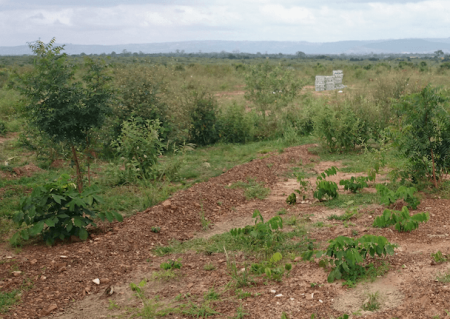The Social Security and National Insurance Trust (SSNIT), Ghana’s primary social security provider, finds itself at a critical juncture, demanding immediate and comprehensive reforms to ensure its long-term sustainability and enhance benefits for retirees. The newly appointed leadership, headed by Director-General Kwesi Afreh Biney, faces the crucial task of streamlining administrative costs, improving pension management, and addressing growing concerns about the scheme’s actuarial soundness. The weight of these challenges is amplified by the increasing national discourse on pension sustainability and the looming 2024 elections, where promises of social security reform have taken center stage. Experts and stakeholders are calling for a transparent and collaborative approach to address these pressing issues and secure a more robust and equitable pension system for Ghanaian workers.
The call for reform is not merely reactive but stems from a deeper concern about the efficiency and long-term viability of the SSNIT scheme. Mashud Abdallah, Executive Director of the African Centre for Retirement Research, has articulated the need for urgent action, emphasizing the importance of prudent financial management to optimize resources and maximize the scheme’s impact. He highlights the core tenets of an efficient system: broad coverage, adequate benefits for retirees, and sustained financial stability in the medium to long term. These goals, while seemingly straightforward, require a multifaceted approach that tackles both administrative inefficiencies and structural challenges within the current system. The incoming leadership must prioritize these objectives to build confidence in the scheme and ensure its ability to deliver on its promises to current and future retirees.
The appointment of Kwesi Afreh Biney as Director-General, along with Adam Sulley as Deputy Director-General in charge of Operations and Benefits, signifies a change in direction for SSNIT. These appointments, following the removal of the previous leadership, come at a time of heightened scrutiny and public expectation. The new leadership inherits a system burdened by concerns about its actuarial health, prompting calls for greater transparency and accountability in its financial management. Their success will hinge on their ability to implement meaningful reforms that address these concerns and restore public trust in the institution. Furthermore, they must navigate the complex political landscape, balancing the demands of various stakeholders while ensuring the long-term stability and effectiveness of the pension system.
The political dimension of SSNIT’s challenges is undeniable. The National Democratic Congress (NDC), a major political party in Ghana, has placed social security reform prominently within its manifesto for the 2024 elections, pledging significant legislative and administrative changes to enhance pension efficiency. This political commitment adds another layer of complexity to the reform process, as the new SSNIT leadership must navigate the potential implications of these proposed changes. This underscores the need for a broad-based, consultative approach, engaging with social partners and political stakeholders to ensure that reforms are both effective and sustainable. The interplay between political promises and the practical realities of pension management will be a key factor in determining the ultimate success of SSNIT’s transformation.
Central to the reform agenda is the imperative to streamline administrative costs. This involves a thorough review of internal processes, identifying areas of inefficiency, and implementing measures to reduce unnecessary expenditure. Optimizing administrative efficiency is not just about cost-cutting; it is about ensuring that the resources contributed by workers are utilized effectively to maximize the benefits they receive upon retirement. This requires a data-driven approach, leveraging technology and best practices to enhance operational effectiveness and ensure that every cedi is used responsibly. The new leadership must demonstrate a commitment to fiscal prudence and transparency to build confidence among contributors and retirees.
Finally, the success of SSNIT’s reforms relies heavily on effective stakeholder engagement. This includes open communication with workers, retirees, employers, and other relevant parties. Building consensus and fostering a shared understanding of the challenges and opportunities is crucial for implementing sustainable changes. The new leadership must prioritize building strong relationships with social partners, engaging in constructive dialogue, and incorporating their perspectives into the reform process. This collaborative approach is not only essential for achieving buy-in but also for ensuring that the reforms are tailored to the specific needs and circumstances of Ghanaian workers and retirees. By working together, SSNIT can build a stronger and more equitable pension system that provides financial security for generations to come.














